A person found guilty of engaging in organ trafficking faces a minimum sentence of 15 years imprisonment
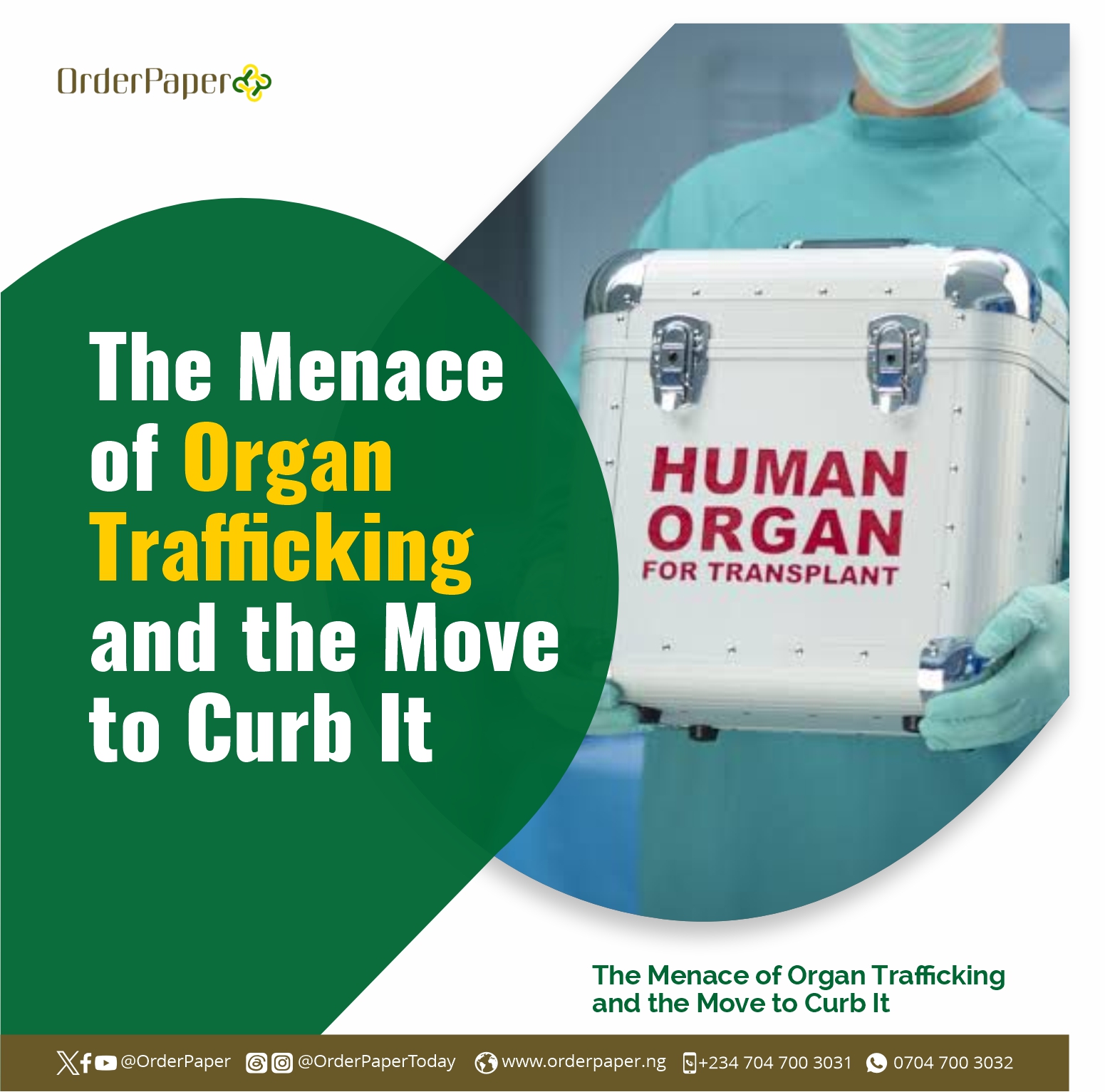
A bill aimed at prohibiting and penalizing organ trafficking in Nigeria has advanced in the House of Representatives.
Sponsored by Rep. Faud Kayode Laguda (APC, Lagos), the proposed legislation passed its second reading on Tuesday, marking a significant step toward addressing a long-standing issue in Nigeria and globally.
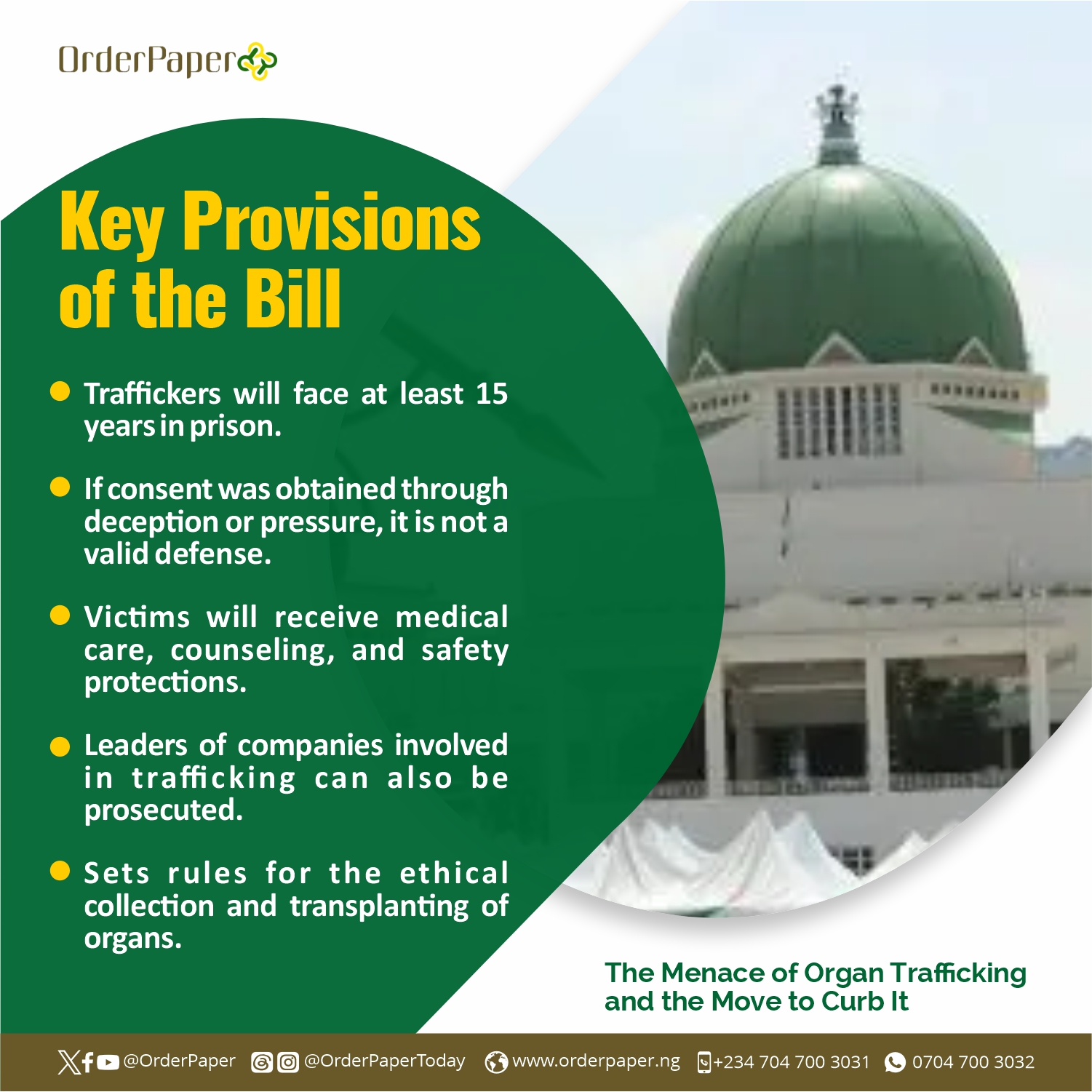
Key Provisions of the Bill
The bill seeks to amend the National Health Act, 2014, by introducing a new Part VI on the Prohibition of Organ Trafficking. It outlines stringent penalties for offenders and establishes mechanisms for the protection of victims.
Offense and Punishment
- A person found guilty of engaging in organ trafficking faces a minimum sentence of 15 years imprisonment.
- Offenses include transports, transfers, harbours or receives a living or deceased person or their organs by means of threat, use of force or other forms of coercion, of abduction, of fraud, of deception, of the abuse of power or of a position of vulnerability, or of the giving or receiving of payments or benefits to achieve the consent of a person having control over another person for the purpose of organ removal; or improperly induces the consent of a potential vendor of organs.
- Consent is explicitly not a defense, even if obtained from the person providing the organ.
Victim Protection
The bill empowers the Minister of Health to create regulations ensuring victims’ access to medical aid, counseling, and other forms of support.
Corporate Accountability
Corporate entities involved in organ trafficking will face prosecution, with individual directors or officers complicit in the act held personally liable.
Regulations and Oversight
The Minister may issue regulations to:
- License and regulate organ procurement organizations.
- Ensure informed consent in organ transplantation.
- Establish preventive measures against organ trafficking and safeguard potential donors.
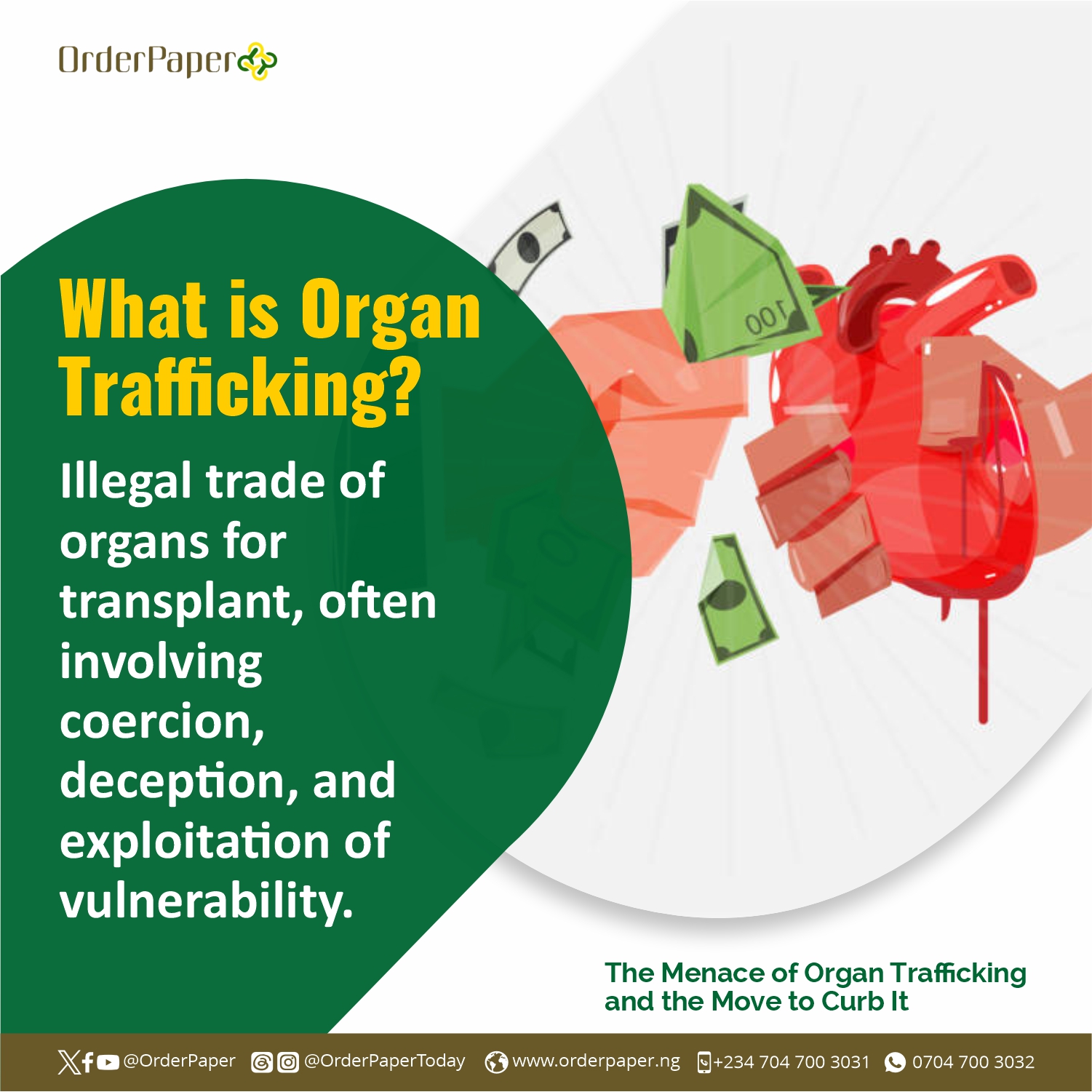
Term definition
Section 64 is to be amended by inserting two new definition paragraph as follows:
- “organ” means the whole or part of any tissue or any other part of the human body other than gametes or embryos.
- “Organ trafficking” has the meaning assigned to it under section 59 of this Act which is A person who engages in organ trafficking commits an offence and is liable on conviction to imprisonment for a term of not less than 15 years.
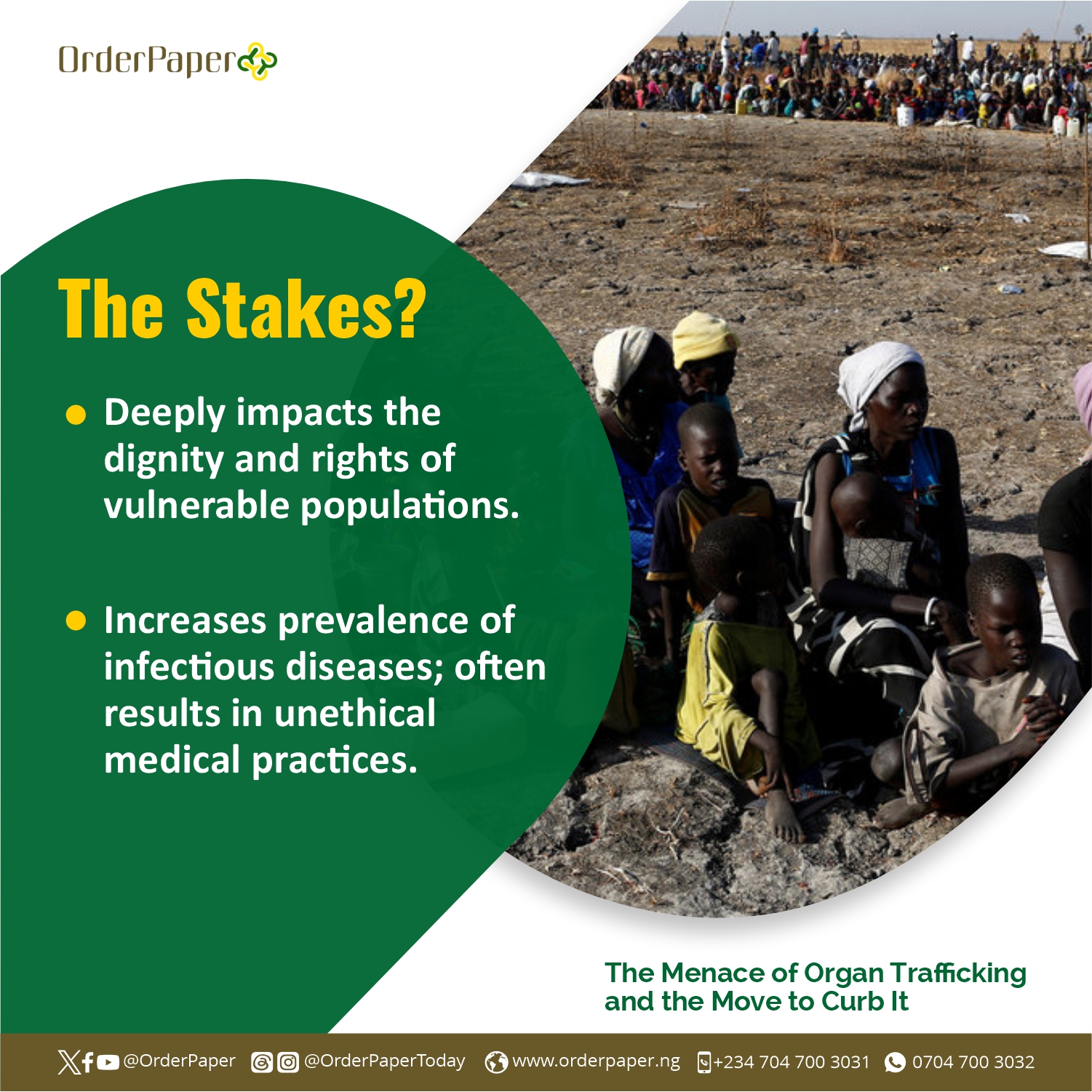
The Scale of Organ Trafficking
Organ trafficking involves the illegal removal of organs, often targeting vulnerable populations such as those living in poverty or marginalized groups. Victims are frequently deceived, coerced, or abducted to provide organs for transplantation or commercial sale.
Globally, an estimated 10% of organ transplants involve trafficked organs, according to a report by Global Financial Integrity. The illegal organ trade generates between $840 million and $1.7 billion annually, with regions like North and West Africa being particularly affected. Despite existing laws, organ trafficking in Nigeria is often misclassified as ritual killings, obscuring the extent of the issue.
High-Profile Cases and the Need for Reform
The exploitation of vulnerable individuals for organ harvesting has garnered global attention. One notable case involved Nigerian Senator Ike Ekweremadu, his wife, and a doctor, who were convicted in May 2023 in the UK for conspiring to exploit a vulnerable victim for organ harvesting. The trio received prison sentences ranging from four to ten years.
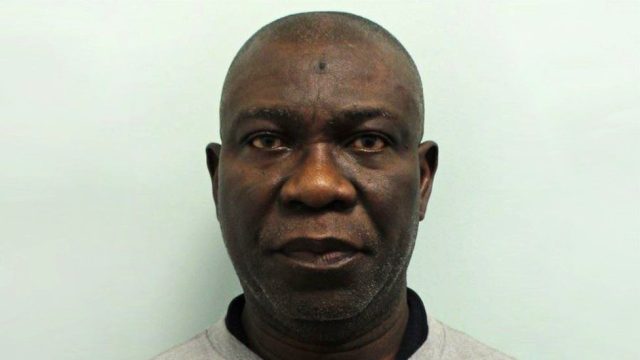
Such cases highlight the urgent need for stricter laws and enforcement mechanisms in Nigeria. While the proposed bill represents a critical step forward, its effective implementation will depend on robust oversight, public awareness, and international collaboration.
STAR Check: Nigerians, particularly, constituents of Surulere 1 federal constituency Lagos State, can keep tabs on the legislative performance of Rep. Laguda throughout the 10th House here



